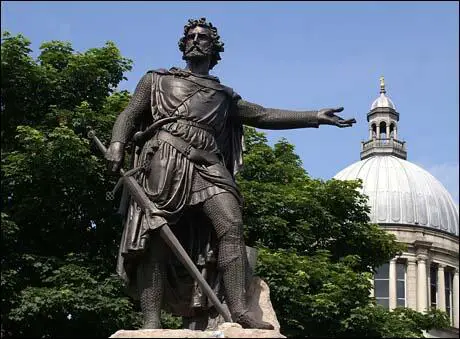William Wallace
William Wallace emerged as a Scottish leader after the defeat of John Balliol in 1296. The following year Wallace and Andrew Moray led a rebellion against the English. His most famous victory was at Stirling Bridge in September 1297, where Scottish infantrymen were able to defeat a large English army of mounted knights.
After the death of Moray in 1297 Wallace became the undisputed leader of the Scots. Wallace continued to create problems for the English army until he was captured in 1305 and executed at Smithfield for treason.

Primary Sources
(1) Song, The Reign of Edward I (c. 1290)
The Scots raise their spears armed in their rags... The kilted people, numerous and savage, fell at Dunbar, and now stink like a dog. Vain glory made the deceitful people deny the true lord of Scotland... the wild people of Scotland soon break their faith... Scotland will not be obedient, it forces the king with his army to return... and reduces them to slavery... the English like angels are always conquerors.
(2) Matthew of Westminster, Flowers of History (c. 1310)
William Wallace, a man void of pity, a robber given to arson and murder, more hardened in cruelty than Herod, more raging in madness than Nero... was condemned to a most cruel but justly deserved death. He was drawn through the streets of London at the tails of horses, until he reached a gallows... especially prepared for him; there he was suspended on a halter; but taken down while alive, he was mutilated, his bowels torn out and burned in a fire, his head then cut off, his body divided into four, and his quarters transmitted to four principal parts of Scotland.

